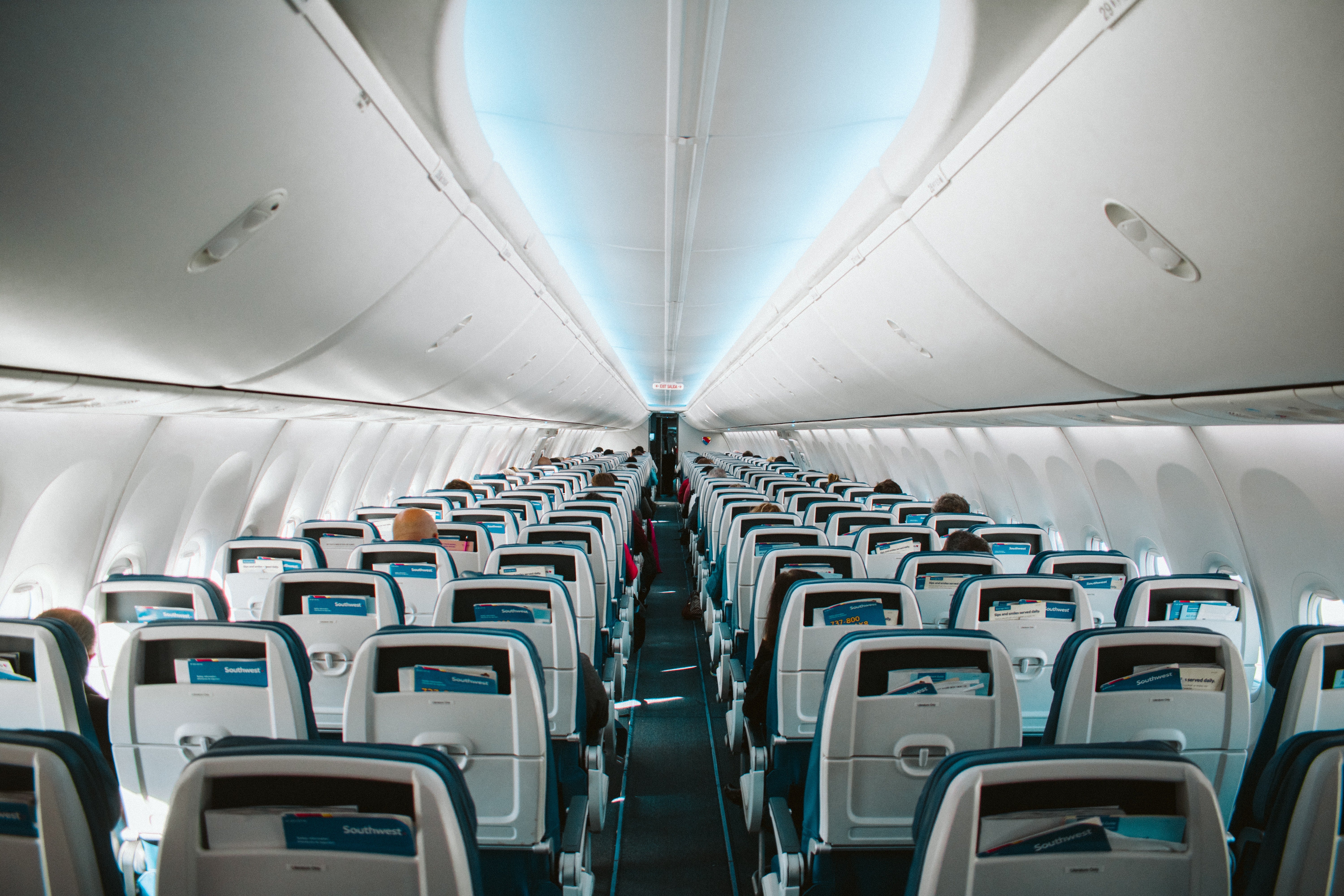Some of the most powerful and highly visible people in the country are gathering and celebrating—and getting sick—as though the coronavirus is no longer a threat.
Earlier this month, they did so at the annual Gridiron Club dinner, which had been held since before the pandemic. While participants were required to have proof of vaccination, more than 70 people tested positive for the virus in the aftermath. Prominent commentators like Leana Wen have framed the dinner as an example of success during a pandemic: The event went on as normal, people had fun, and as expected, people tested positive, no one died. This, we are told, is the new normal; everyone is going to get COVID anyway.
It is increasingly hard to opt in or out of this kind of experience: Yesterday, across the skies, people gleefully removed their masks on airplanes, after a judge ruled the Centers for Disease Control and Prevention’s masking order on public transit unlawful.
Perhaps you are like me, and you’re still wearing a good fitting mask in indoor public places and gatherings (and being choosy about what activities to do in the first place). When I’m out, I am sometimes one of the few people donning a KN95 or N95 mask. There may not be overt social pressure to take off the mask, others may not even care, but it makes me feel like a bit of an outcast anyway. Despite this, I have no plans to take off my mask indoors anytime soon. There are good reasons, still, to delay getting infected.
Yes, we have a large number of ways to minimize the threat of COVID right now that are not masking or staying home. If you are personally organizing an event, you can require a same-day PCR test ahead of the gathering, you can require vaccinations (which were required at the Gridiron dinner), you can improve the ventilation of the venue. Following the gathering, participants can test themselves. Catching the virus early means that you can get prescribed a regimen of the antiviral drug Paxlovid, which has been shown to be effective at reducing rates of hospitalizations and deaths.
But to have access to carefully mitigated gatherings is, unfortunately, a huge privilege, as is having the means to deal with the fallout should you get sick. The attendees of the Gridiron dinner happen to be some of the most powerful people in the country. We can assume they all have access to high-quality health care, and therefore tools like PCR tests and Paxlovid (it needs to be taken within five days of symptom onset and isn’t always easy to get). The government also employs contact tracing for cases among its ranks—another way to help quickly figure out if you’re infected. Meanwhile, funding for vaccines, tests, and treatments has run out and Congress has yet to pass a bill funding these things, which means even simple tools like tests are no longer necessarily available for free. If you get admitted to the hospital and you’re not insured, you’re on the hook for the bill. In essence, there’s a huge gap between the reality of navigating risk for the political class and the rest of us.
Besides, while the chances of getting long COVID are reduced by getting vaccinated, and only a(n albeit significant) subset of people infected with COVID have long-term symptoms, ongoing symptoms after an infection are still a risk for all of us. Given the fact that long COVID manifests through a variety of terrifying symptoms from heart problems to problems with brain functioning, taste and smell issues, and problems with fatigue and breathing, among others, for me, it’s not really a risk that’s easily dismissed.
I might someday get COVID—that’s reality. If you’ve gotten COVID already, you may, despite even your best efforts, get it again. But delaying infection as much as possible allows us to better mitigate the consequences of an infection through whatever new treatments and preventative tools may be available. Every week, as much as there is terrifying news about the virus, there is promising news about new treatments and vaccines. A new antiviral nasal spray has shown promise in mice and does better than current antibody treatments. Researchers at Walter Reed have developed a vaccine that is variant-resistant and are currently testing it. Perhaps, in the near future, there will be a vaccine that completely stops transmission or treatments that prevent long COVID. And scientists are trying to untangle whether Paxlovid or other therapies can reduce the risk of long COVID.
Doing your best to delay infection not only has benefits for yourself; wearing a mask or declining plans that seem too risky also reminds people that we are in a pandemic, as annoying as that fact may be. Those reminders keep the pressure on to develop better therapeutics and vaccines and get them out to people. Maybe they’ll also encourage those around you to be a little more diligent about masking up, or to stay home when they’re sick. It might feel small, but consider the alternative: If we collectively accepted the reality of mass infection, why do anything at all to mitigate its impacts?
